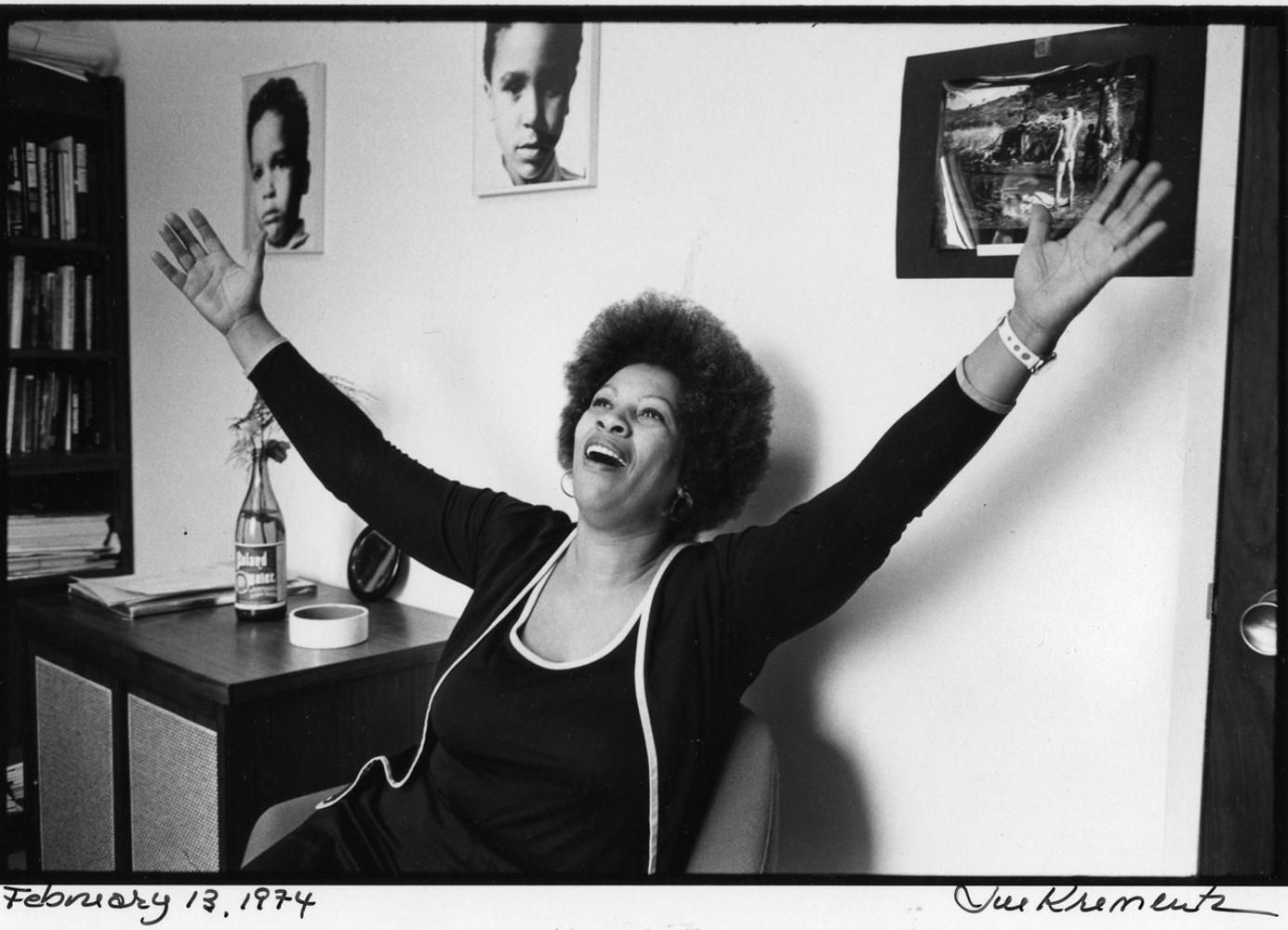Toni Morrison, David Bowie and legacy
Portrait of Toni Morrison at Random House in New York 1974, by Jill Krementz. Used under fair use guidelines
Ellah Wakatama Allfrey would carry this photo of Toni Morrison with her from desk to desk. She describes the effect of the gentle waves of her hair and her outspread arms “I looked at her and knew that I was not only possible, but necessary.” There’s an interesting thought to be explored here on how images or artefacts can store a galvanising power for our purpose quests.
The Guardian recently featured a set of eulogies to Toni Morrison, including this exquisite tribute from editor and critic Ellah Wakatama Allfrey:
"Today, [my sister and I] whisper tears over the phone across an ocean and remember for each other a writer who gave us language that was big enough to describe the love that is friendship, who taught us to look from the bottom rung of the ladder that is too often the reality of black womanhood and to perceive from this most difficult and complex of perspectives the most beautiful and terrifying of all the truths that make up the human condition."
I love how this sentence speaks not of what Morrison achieved, but of what she gave. It’s a reminder that the most valuable things we can leave behind are those which can bring life to the lives of others. Often when we think of legacy we think of a body of work. This can be daunting when considering our own legacies, especially if we compare ourselves to cultural luminaries such as Morrison. But if we consider that the legacy is not the work itself, but the effect it has on those that encounter it, then what previously seemed like an unclimbable peak can instead become a territory for exploration. Writing a Nobel prize-winning novel may seem unlikely to the point of impossibility. But what else might there be that could one day cause others to share sentiments as personal and rare as these about you?
Nobel prizes don’t live in people’s hearts. Beautiful and terrifying truths about the human condition do.
A eulogy that lives in my heart was written about David Bowie, by longtime friend and theatre producer Robert Fox. Fox does not describe art, nor artist but rather an ability of Bowie’s that allowed art to emerge from others:
He had one quality that was unique in my experience – he had his ego completely in check. Not for one second did he behave with anything other than impeccable manners, humour and grace and a desire to collaborate on an entirely even playing field. He had nothing but support and encouragement for his colleagues and his highly tuned and immensely well disciplined brain inspired others to try to achieve their best.
There is a galvanising power about this particular peak that calls me onwards. I may never achieve Bowie’s Himalayan heights, but I will climb towards them anyway. When I fall on the path, as I often do, it feels as if I am being helped up by a thin, white hand…






